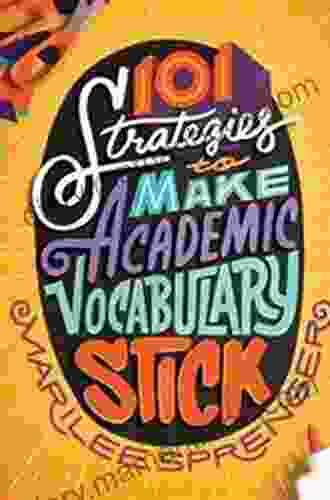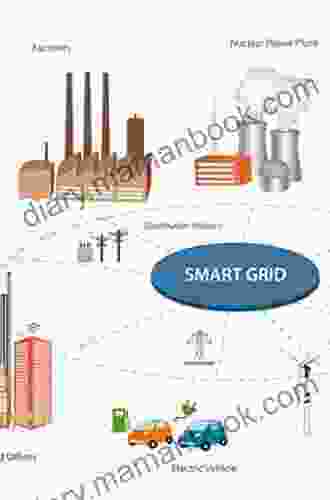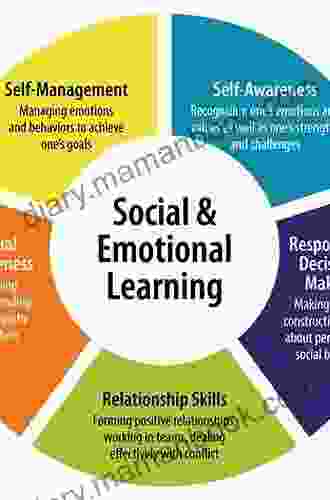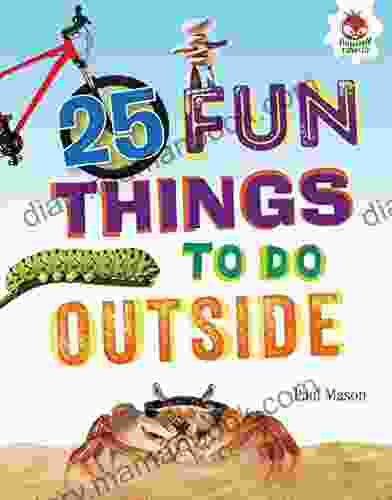Blueprints for Teaching Complex Cognitive, Social, Emotional, and Digital Skills

In today's rapidly changing world, it is more important than ever for students to develop complex cognitive, social, emotional, and digital skills. These skills are essential for success in school, work, and life.
Cognitive skills include the ability to think critically, solve problems, and make decisions. Social skills include the ability to communicate effectively, work collaboratively, and build relationships. Emotional skills include the ability to manage emotions, cope with stress, and empathize with others. Digital skills include the ability to use technology effectively and ethically.
Teaching these skills can be challenging, but it is essential for preparing students for the future. This article provides a comprehensive overview of the blueprints for teaching complex cognitive, social, emotional, and digital skills. It explores the importance of these skills in today's world and offers practical strategies for educators to implement in their classrooms.
4.6 out of 5
| Language | : | English |
| File size | : | 27335 KB |
| Text-to-Speech | : | Enabled |
| Screen Reader | : | Supported |
| Enhanced typesetting | : | Enabled |
| Word Wise | : | Enabled |
| Print length | : | 493 pages |
| X-Ray for textbooks | : | Enabled |
| Paperback | : | 41 pages |
| Item Weight | : | 4 ounces |
| Dimensions | : | 6 x 0.11 x 9 inches |
Complex cognitive, social, emotional, and digital skills are essential for success in school, work, and life.
Cognitive skills are necessary for learning and problem-solving. They help students to understand new information, make connections between different ideas, and apply their knowledge to new situations.
Social skills are essential for building relationships and working collaboratively. They help students to communicate effectively, resolve conflicts, and cooperate with others.
Emotional skills are important for managing emotions, coping with stress, and empathizing with others. They help students to regulate their emotions, build resilience, and develop healthy relationships.
Digital skills are necessary for using technology effectively and ethically. They help students to access information, communicate with others, and create and share content.
Students who have strong complex cognitive, social, emotional, and digital skills are more likely to succeed in school, work, and life. They are better able to learn new information, solve problems, build relationships, manage their emotions, and use technology effectively.
There are a number of different blueprints for teaching complex cognitive, social, emotional, and digital skills. The following are some of the most common:
- Cognitive skills:
- Direct instruction: This approach involves teaching students specific cognitive skills, such as how to think critically, solve problems, and make decisions.
- Inquiry-based learning: This approach involves having students explore problems and develop their own solutions.
- Project-based learning: This approach involves having students work on projects that require them to use their cognitive skills to solve problems and create new products or services.
- Social skills:
- Social skills training: This approach involves teaching students specific social skills, such as how to communicate effectively, resolve conflicts, and cooperate with others.
- Role-playing: This approach involves having students practice social skills in simulated situations.
- Cooperative learning: This approach involves having students work together on projects and assignments.
- Emotional skills:
- Emotional intelligence training: This approach involves teaching students about emotions and how to manage them.
- Mindfulness training: This approach involves teaching students how to pay attention to their thoughts and feelings in the present moment.
- Social-emotional learning: This approach involves teaching students about emotions and how to manage them in social situations.
- Digital skills:
- Computer literacy: This approach involves teaching students how to use computers and other digital devices.
- Digital citizenship: This approach involves teaching students about the responsible and ethical use of technology.
- Digital media literacy: This approach involves teaching students how to evaluate and use digital media.
The best blueprint for teaching complex cognitive, social, emotional, and digital skills will depend on the specific needs of the students and the classroom environment. However, all of the blueprints listed above have been shown to be effective in helping students to develop these essential skills.
Here are some practical strategies that educators can use to teach complex cognitive, social, emotional, and digital skills in their classrooms:
- Cognitive skills:
- Use open-ended questions: Ask students questions that require them to think critically and apply their knowledge to new situations.
- Encourage students to ask questions: Create a classroom environment where students feel comfortable asking questions and sharing their ideas.
- Provide opportunities for students to practice: Give students opportunities to apply their cognitive skills to real-world problems.
- Social skills:
- Establish clear expectations: Let students know what is expected of them in terms of their social behavior.
- Model positive social skills: Show students how to communicate effectively, resolve conflicts, and cooperate with others.
- Provide opportunities for students to practice: Give students opportunities to practice their social skills in real-world situations.
- Emotional skills:
- Create a safe and supportive classroom environment: Let students know that it is okay to talk about their feelings and that they will be supported.
- Teach students about emotions: Help students to understand different emotions and how to manage them.
- Provide opportunities for students to practice: Give students opportunities to practice managing their emotions in real-world situations.
- Digital skills:
- Integrate technology into the curriculum: Use technology to enhance learning and to give students opportunities to practice their digital skills.
- Teach students about digital citizenship: Help students to understand the responsible and ethical use of technology.
- Provide opportunities for students to create and share content: Give students opportunities to use technology to create and share their work with others.
By implementing these strategies, educators can help their students to develop the complex cognitive, social, emotional, and digital skills they need to succeed in school, work, and life.
Complex cognitive, social, emotional, and digital skills are essential for success in school, work, and life. By using the blueprints and strategies described in this article, educators can help their students to develop these essential skills and prepare them for the future.
4.6 out of 5
| Language | : | English |
| File size | : | 27335 KB |
| Text-to-Speech | : | Enabled |
| Screen Reader | : | Supported |
| Enhanced typesetting | : | Enabled |
| Word Wise | : | Enabled |
| Print length | : | 493 pages |
| X-Ray for textbooks | : | Enabled |
| Paperback | : | 41 pages |
| Item Weight | : | 4 ounces |
| Dimensions | : | 6 x 0.11 x 9 inches |
Do you want to contribute by writing guest posts on this blog?
Please contact us and send us a resume of previous articles that you have written.
 Top Book
Top Book Novel
Novel Fiction
Fiction Nonfiction
Nonfiction Literature
Literature Paperback
Paperback Hardcover
Hardcover E-book
E-book Audiobook
Audiobook Bestseller
Bestseller Classic
Classic Mystery
Mystery Thriller
Thriller Romance
Romance Fantasy
Fantasy Science Fiction
Science Fiction Biography
Biography Memoir
Memoir Autobiography
Autobiography Poetry
Poetry Drama
Drama Historical Fiction
Historical Fiction Self-help
Self-help Young Adult
Young Adult Childrens Books
Childrens Books Graphic Novel
Graphic Novel Anthology
Anthology Series
Series Encyclopedia
Encyclopedia Reference
Reference Guidebook
Guidebook Textbook
Textbook Workbook
Workbook Journal
Journal Diary
Diary Manuscript
Manuscript Folio
Folio Pulp Fiction
Pulp Fiction Short Stories
Short Stories Fairy Tales
Fairy Tales Fables
Fables Mythology
Mythology Philosophy
Philosophy Religion
Religion Spirituality
Spirituality Essays
Essays Critique
Critique Commentary
Commentary Glossary
Glossary Bibliography
Bibliography Index
Index Table of Contents
Table of Contents Preface
Preface Introduction
Introduction Foreword
Foreword Afterword
Afterword Appendices
Appendices Annotations
Annotations Footnotes
Footnotes Epilogue
Epilogue Prologue
Prologue Albert Knapp Psyd Bcba D Rpt S
Albert Knapp Psyd Bcba D Rpt S Crispin Rogers
Crispin Rogers David Baldacci
David Baldacci Gojko Adzic
Gojko Adzic A J Curtis
A J Curtis Robert M Hazen
Robert M Hazen D K Holmberg
D K Holmberg Barre Toelken
Barre Toelken Alecky Blythe
Alecky Blythe Diversity4tech Science
Diversity4tech Science Meg Elison
Meg Elison Imagine Dragons
Imagine Dragons Andrew Alexander
Andrew Alexander Deborah Chester
Deborah Chester P M Sabin Moore
P M Sabin Moore C M Mordan
C M Mordan Carol Creelawn
Carol Creelawn Stuart Russell
Stuart Russell Jason Cheek
Jason Cheek Bruce Fulton
Bruce Fulton
Light bulbAdvertise smarter! Our strategic ad space ensures maximum exposure. Reserve your spot today!
 Gerald BellFollow ·7.5k
Gerald BellFollow ·7.5k Hugh BellFollow ·3.9k
Hugh BellFollow ·3.9k Cason CoxFollow ·8.8k
Cason CoxFollow ·8.8k Colin RichardsonFollow ·14.8k
Colin RichardsonFollow ·14.8k Robin PowellFollow ·9.5k
Robin PowellFollow ·9.5k Pete BlairFollow ·6.9k
Pete BlairFollow ·6.9k Bradley DixonFollow ·11.4k
Bradley DixonFollow ·11.4k Camden MitchellFollow ·10.3k
Camden MitchellFollow ·10.3k

 Jorge Luis Borges
Jorge Luis BorgesThe Truth About the 15 Qualities That Men Secretly Admire...
Every woman wants to be loved and...

 Francisco Cox
Francisco CoxPlague Ship: Unraveling the Mystery of the Oregon Files
The Oregon Files, a collection of classified...

 Rudyard Kipling
Rudyard Kipling101 Strategies to Make Academic Vocabulary Stick: A...
Academic vocabulary is an...

 Fletcher Mitchell
Fletcher MitchellPractitioner Guide for Cities, Regions, and Countries:...
The world is...

 Emilio Cox
Emilio CoxOptimization and Security Challenges in Smart Power Grids
Smart power grids (SPGs) are emerging as a...

 Chandler Ward
Chandler WardMiles Davis and the Civil Rights Movement in America: A...
Miles Davis, the iconic jazz...
4.6 out of 5
| Language | : | English |
| File size | : | 27335 KB |
| Text-to-Speech | : | Enabled |
| Screen Reader | : | Supported |
| Enhanced typesetting | : | Enabled |
| Word Wise | : | Enabled |
| Print length | : | 493 pages |
| X-Ray for textbooks | : | Enabled |
| Paperback | : | 41 pages |
| Item Weight | : | 4 ounces |
| Dimensions | : | 6 x 0.11 x 9 inches |












